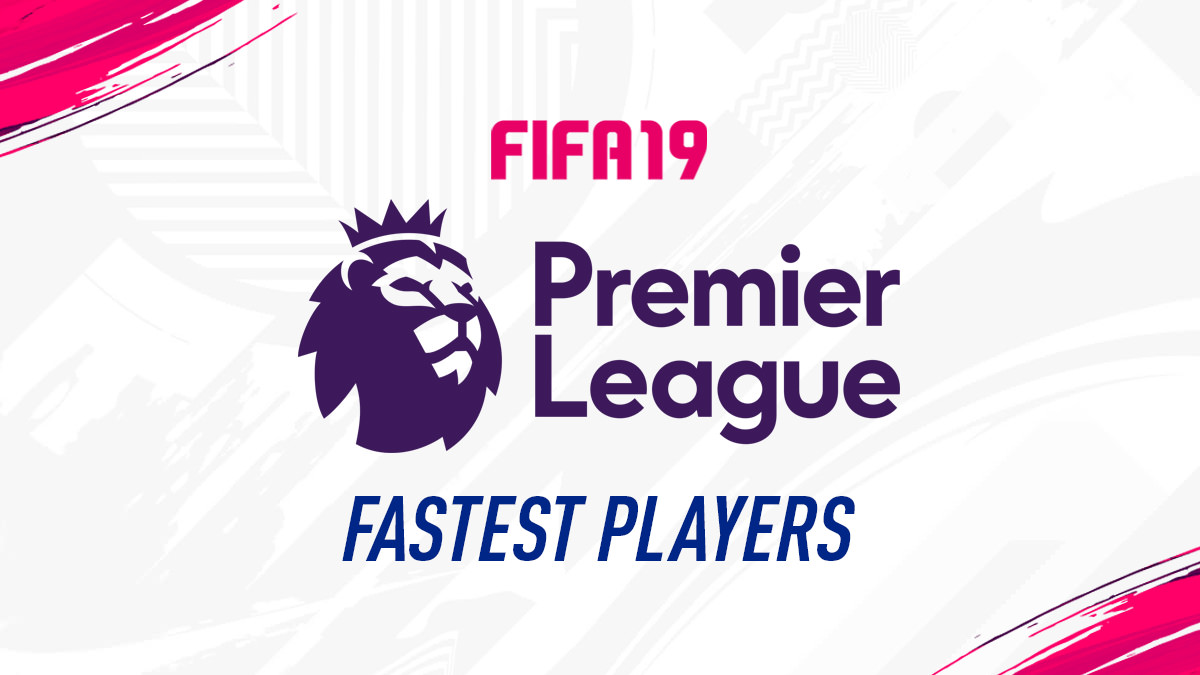
The Unseen Architects: Unpacking Football Coaching Badges and Their Global Significance
Football, the world’s most beloved sport, captivates billions with its raw emotion, breathtaking skill, and tactical intricacies. While the players on the pitch command the spotlight, behind every successful team, from grassroots academies to World Cup winners, stands a dedicated coaching staff. These unseen architects of victory and development are increasingly defined by a critical element: their coaching badges. More than just certificates, these qualifications represent a structured pathway of learning, a commitment to professional development, and a global standardisation of coaching excellence.
This article delves into the intricate world of football coaching badges, explaining their purpose, hierarchical structure, the governing bodies that oversee them, and why they are indispensable for anyone aspiring to lead on the touchline.
What Exactly Are Football Coaching Badges?
At their core, football coaching badges are formal qualifications issued by national and international football governing bodies. They certify that an individual has undergone specific training, demonstrated a defined level of competency, and acquired the necessary knowledge and skills to coach at various levels of the game. Think of them as the professional licenses for football coaches, akin to medical degrees for doctors or pilot licenses for aviators.
The primary purpose of these badges is multifaceted:
- Standardisation: They ensure a baseline level of coaching quality, safety, and ethical conduct across different regions and levels of play.
- Player Development: By equipping coaches with modern methodologies, they directly contribute to the holistic development of players, from fundamental skills to advanced tactical understanding.
- Professionalisation: They elevate coaching from an informal pursuit to a recognised profession, providing a clear career pathway for aspiring individuals.
- Knowledge Transfer: They facilitate the dissemination of best practices, sports science principles, and tactical innovations throughout the football ecosystem.
- Safety and Welfare: Particularly at youth levels, badges often include modules on safeguarding children, first aid, and creating a positive and safe learning environment.
The Global Governance: FIFA, Confederations, and National FAs
The landscape of football coaching education is governed by a hierarchical structure, ensuring consistency while allowing for regional adaptations:
-
FIFA (Fédération Internationale de Football Association): As the global governing body, FIFA sets overarching principles and guidelines for coaching education. While it doesn’t directly issue most coaching badges, it promotes the professionalisation of coaching worldwide and often provides resources and support to confederations and national associations. Its "FIFA Coach Education" program aims to standardise coaching philosophies globally.
-
Confederations (UEFA, CONMEBOL, CAF, AFC, CONCACAF, OFC): These continental bodies are responsible for developing more specific frameworks and conventions that member associations must adhere to. The most prominent example is the UEFA Coaching Convention, which has been instrumental in standardising coaching qualifications across Europe. This convention ensures that a coach holding a UEFA Pro Licence, for instance, has met similar rigorous standards regardless of the European country where they obtained it. Other confederations, such as the AFC (Asia) and CONCACAF (North America), have similar, albeit sometimes less rigidly integrated, systems.
-
National Football Associations (e.g., The FA, USSF, DFB): These are the bodies directly responsible for implementing the confederation’s frameworks, designing and delivering the actual coaching courses, and issuing the badges within their respective countries. They adapt the broader guidelines to their national football culture, resources, and specific needs.
The synergy between these layers ensures that while there’s a global standard of excellence, there’s also enough flexibility for local nuances.
The Hierarchical Ladder: A Typical Progression
Coaching badges typically follow a progressive, hierarchical structure, mirroring the increasing complexity and demands of coaching at higher levels. While specific names may vary between countries, the general progression is similar:
-
Entry-Level / Grassroots (e.g., FA Playmaker, USSF Introduction to Coaching, UEFA C Licence equivalent):
- Focus: Designed for parents, volunteers, and aspiring coaches working with young children or amateur adult teams.
- Content: Emphasises creating a fun and safe environment, basic session planning, fundamental football techniques (passing, dribbling, shooting), small-sided games, and basic safeguarding principles.
- Outcome: Equips coaches to lead recreational teams and introduce foundational football skills.
-
Intermediate / Developmental (e.g., FA Level 2, USSF D/C Licence, UEFA B Licence):
- Focus: Targets coaches working with youth teams in structured academies, semi-professional clubs, or higher-level amateur adult teams.
- Content: Delves deeper into age-appropriate coaching methodologies, tactical principles (e.g., formations, attacking/defensive play), physical preparation, psychological aspects of the game, advanced session planning, and analysis.
- Outcome: Prepares coaches to develop players technically, tactically, and physically within a more competitive environment. The UEFA B Licence, in particular, is a widely recognised benchmark for serious youth development and lower-league professional coaching.
-
Advanced / Professional (e.g., FA Level 3 (UEFA A Licence), USSF B/A Licence, UEFA A Licence):
- Focus: Aims at coaches working with elite youth players, professional academy teams, or first-team coaches in lower professional leagues.
- Content: Covers advanced tactical systems, match analysis, periodisation, sports psychology, leadership, managing diverse groups of players, and integrating sports science into training. It demands a sophisticated understanding of the game and coaching principles.
- Outcome: Qualifies coaches for significant roles within professional club structures, often as academy heads, assistant first-team coaches, or head coaches of non-league or lower-tier professional teams.
-
Elite / Pro Licence (e.g., FA Level 5 (UEFA Pro Licence), USSF Pro Licence, UEFA Pro Licence):
- Focus: The pinnacle of football coaching qualifications. Mandatory for managing a team in the top professional leagues of most UEFA-affiliated countries, as well as for managing national teams.
- Content: An intensive, demanding course focusing on elite performance management, advanced tactical periodisation, leadership in high-pressure environments, media relations, club management, player welfare at the professional level, and international football trends. It often involves residential components, practical assessments at professional clubs, and a significant final project.
- Outcome: The ultimate qualification for leading professional clubs at the highest level or national teams.
Beyond these core levels, there are also specialist badges for specific areas, such as:
- Goalkeeping Coaching: Levels dedicated to the unique technical, tactical, and psychological demands of goalkeepers.
- Fitness Coaching: Qualifications focusing on sports science, conditioning, and injury prevention tailored for football.
- Youth Modules: Specific courses often integrated into the main pathway, focusing on particular age groups (e.g., U6-U8, U9-U12).
A Closer Look: UEFA, The FA, and USSF Pathways
To illustrate the hierarchy, let’s examine a few prominent systems:
1. The UEFA Coaching Convention (Europe):
The gold standard in European football, the UEFA Coaching Convention mandates a harmonised system.
- UEFA C Licence: Foundational level, often replacing previous national entry-level badges.
- UEFA B Licence: Focus on youth development and amateur adult football.
- UEFA A Licence: For coaches working with elite youth or professional reserve teams, and head coaches of lower-tier professional clubs.
- UEFA Pro Licence: The highest qualification, required for head coaches of top-flight clubs and national teams.
2. The English FA Coaching Pathway:
Integrated within the UEFA framework, The FA offers a clear progression:
- FA Playmaker: A free, online introductory course.
- Introduction to Coaching Football (replaces FA Level 1): Foundational for grassroots.
- FA Level 2 (soon to be replaced by a new ‘UEFA B’ aligned course): For coaches of youth teams or adult recreational teams.
- UEFA B Licence: For coaches in professional academies or higher non-league football.
- UEFA A Licence: For coaches in elite youth football or professional senior football.
- UEFA Pro Licence: For managing at the elite professional level.
3. The United States Soccer Federation (USSF) Pathway:
The USSF system has evolved to align more closely with global standards:
- Grassroots Licenses (4v4, 7v7, 9v9, 11v11): Online and in-person courses for youth coaches.
- D Licence: Intermediate, building on grassroots principles.
- C Licence: For coaches working with competitive youth teams.
- B Licence: For coaches in high-level youth and adult amateur football.
- A-Youth Licence: Specialised for elite youth development.
- A-Senior Licence: For coaches working with professional adult teams.
- Pro Licence: The highest USSF qualification, for professional and national team coaches.
Beyond the Badges: What Else Makes a Great Coach?
While coaching badges provide the essential theoretical and practical foundation, they are by no means the sole determinant of a coach’s success. Many other factors contribute to becoming a truly great football coach:
- Experience: Both playing experience (especially at a high level) and, crucially, diverse coaching experience across different age groups, levels, and cultures.
- Continuing Professional Development (CPD): The game constantly evolves. Great coaches never stop learning, attending workshops, seminars, reading extensively, and embracing new technologies and methodologies.
- Soft Skills:
- Communication: Clear, concise, motivating, and empathetic communication with players, staff, and management.
- Leadership: Inspiring, guiding, and empowering individuals and teams.
- Man-Management: Understanding individual personalities, managing egos, and fostering a cohesive team environment.
- Problem-Solving: Adapting to unforeseen circumstances during matches or training.
- Resilience and Adaptability: Bouncing back from setbacks and adjusting strategies.
- Emotional Intelligence: Understanding and managing one’s own emotions and those of others.
- Passion and Dedication: An unwavering love for the game and a tireless commitment to player and team improvement.
- Networking: Building relationships within the football community, learning from peers, and opening doors for future opportunities.
Challenges and Criticisms of the System
Despite their undeniable benefits, coaching badge systems are not without their criticisms:
- Cost: Higher-level badges can be prohibitively expensive, potentially excluding talented individuals from less affluent backgrounds.
- Accessibility: Courses often require significant time commitment (e.g., residential weeks) and may not be easily accessible geographically for all aspiring coaches.
- Theory vs. Practice: Some argue that the courses can be overly academic or theoretical, not sufficiently preparing coaches for the unpredictable realities of match-day pressure or the nuances of man-management.
- Stifling Creativity: A common critique is that overly rigid curricula might produce coaches who adhere strictly to prescribed methods, potentially stifling individual tactical creativity or innovative approaches.
- Recognition and Transferability: While the UEFA Convention has improved this in Europe, transferring badges and their recognition across different confederations or between professional and amateur bodies can still be complex.
- "Badge Collectors": There’s a concern that some individuals focus on accumulating badges without truly internalising the lessons or effectively applying them in practice.
These criticisms highlight the ongoing need for systems to evolve, becoming more accessible, practical, and adaptable while maintaining high standards.
Conclusion
Football coaching badges are far more than just pieces of paper; they are the bedrock of structured player development and professional coaching. They represent a global commitment to elevating the quality of football instruction, ensuring that players at all levels receive expert guidance and that the game continues to evolve and thrive. From the grassroots volunteer fostering a love for the game in young children to the elite manager orchestrating a Champions League triumph, these qualifications provide a vital framework of knowledge, skill, and ethical conduct.
While the badges themselves are a crucial foundation, they are merely the beginning of a lifelong journey in coaching. The most successful coaches combine their formal education with invaluable experience, continuous learning, and an innate ability to lead, inspire, and connect with people. As the beautiful game continues its relentless march forward, the unseen architects, armed with their badges and boundless passion, will remain at the forefront, shaping its future one player, one team, and one tactical masterclass at a time.



